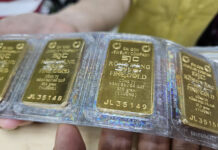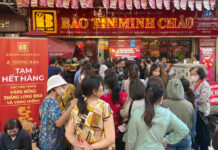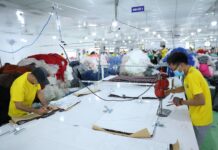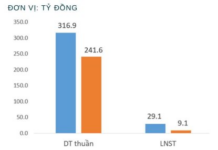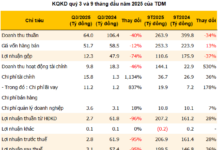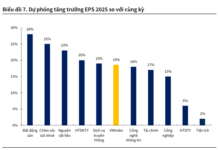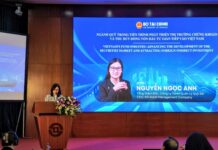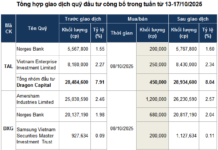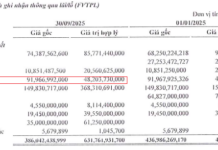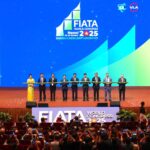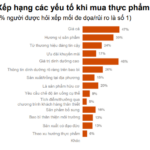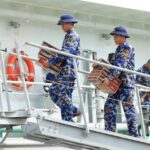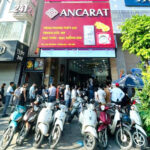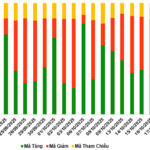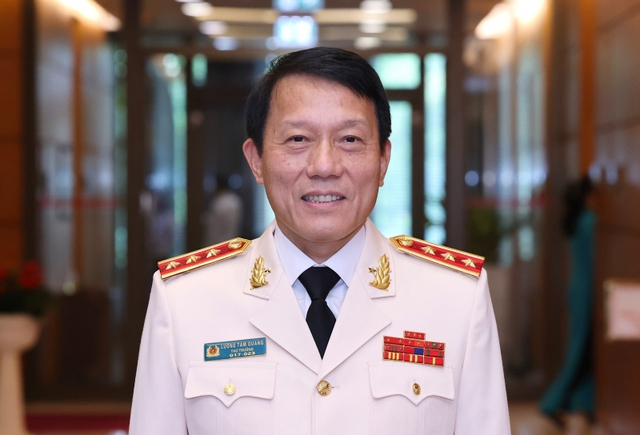At the Vietnam-EU Economic and Trade Cooperation Forum 2025 held on October 17, Mr. Ngo Chung Khanh, Deputy Director of the Multilateral Trade Policy Department under the Ministry of Industry and Trade, described the past five years as the “golden period” of the Vietnam-EU Free Trade Agreement (EVFTA). However, he noted that Vietnam has not fully leveraged the agreement’s advantages, as export values have increased but market share remains nearly unchanged.
Data reveals that two-way trade between Vietnam and the EU rose from over $50 billion in 2020 to $65 billion by the end of 2024, marking a 25% increase. Key export sectors such as seafood, textiles, and footwear have shown robust growth, enabling Vietnam to maintain a trade surplus with the EU, roughly double the value of its imports from the bloc.
Despite these gains, a closer look reveals challenges. Experts highlight that Vietnam’s market share in the EU remains low, fluctuating between 2-6%. Seafood accounts for approximately 4%, while agricultural and other industrial products only reach 2-3%. Vietnamese goods represent just 1.4% of the EU’s total annual imports of $2.64 trillion, and the EU constitutes only 4% of Vietnam’s total export turnover.
“With a market exceeding $2.6 trillion and numerous products enjoying 0% tariffs, we have yet to fully capitalize on these opportunities. Some goods, without EVFTA, would face tariffs of 15-20%, and seafood tariffs can reach up to 13%. Yet, businesses are seeking opportunities elsewhere,” Mr. Khanh observed. He questioned why Vietnam has not fully utilized this market, especially when the EU’s seafood sector is valued at $31 billion, while Vietnam’s exports to the EU remain around $1 billion.
According to Mr. Khanh, Vietnam’s export market share in Europe has been inconsistent, even declining at times. This reflects a lack of focus on the EU market as businesses divert resources to other regions. “Diversification is beneficial, but it must have a clear focus. We cannot diversify by neglecting our existing advantages,” he added.
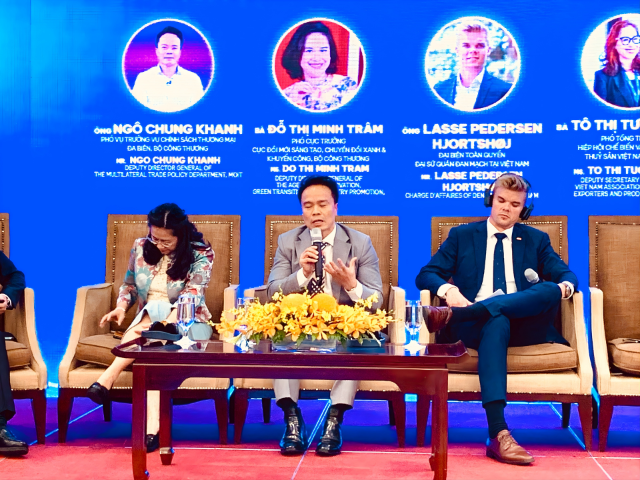 Mr. Ngo Chung Khanh (with microphone) believes Vietnam has not fully utilized the “golden period” of EVFTA – Photo: Tu Kinh
|
Beyond tariffs, businesses face challenges in understanding new EU regulations. Ms. To Thi Tuong Lan, Deputy Secretary-General of the Vietnam Association of Seafood Exporters and Producers (VASEP), shared that a May 2025 survey found only 12% of seafood enterprises fully understand new regulations such as the Carbon Border Adjustment Mechanism (CBAM), Corporate Sustainability Due Diligence Directive (CS3D), and EU Deforestation Regulation (EUDR). Approximately 60% have a vague understanding or are unaware of their specific impacts.
Ms. Lan attributed the seafood sector’s failure to meet the $1.5 billion export target to the EU, despite tariff preferences, to this lack of preparedness. “The EU offers low tariffs but imposes stringent technical and environmental standards. Non-compliance will hinder sustained growth,” she warned.
Echoing this sentiment, Mr. Lasse Pedersen Hjortshoj, representative of the Danish Embassy in Vietnam, noted that new sustainability regulations under the European Green Deal and ESG (Environmental, Social, Governance) standards are becoming mandatory for imports. Non-compliant businesses risk losing market access or facing tax barriers. However, this also presents an opportunity for Vietnam to leverage its green foundation, enhance digitalization, and promote renewable energy to gain a competitive edge.
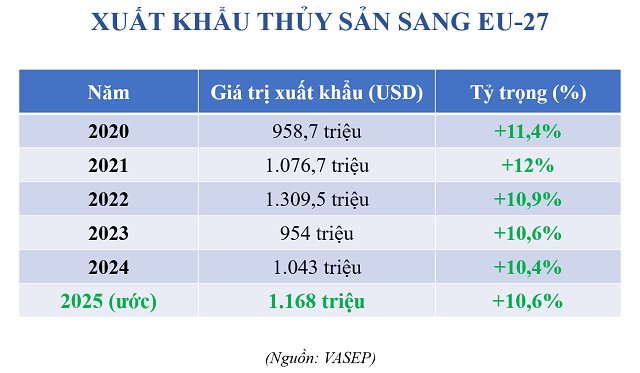
Vietnam’s seafood exports to the 27 EU countries peaked at over $1.3 billion but have since declined. Source: VASEP
|
As the “golden period” of EVFTA nears its end, the EU is accelerating the signing of new trade agreements with regional countries. Negotiations with Indonesia have concluded, with the agreement expected to take effect in September 2027. FTAs with Malaysia and Thailand are also progressing, and the agreement with Mercosur, stalled for over 20 years, has been revived. “Vietnam’s tariff advantages are rapidly diminishing. In trade, a 1% tariff difference can significantly alter the narrative,” Mr. Ngo Chung Khanh cautioned.
Citing Mexico’s 50% tax on goods from Asian countries without an FTA, he questioned why businesses have not shifted to this market to benefit from 0% tariffs. The gap between 50% and 0%, he noted, is too significant to ignore.
Mr. Khanh emphasized that amid rising global protectionism, bilateral and regional economic ties are increasingly vital. World Trade Organization (WTO) data shows that from mid-2024 to mid-2025, trade defense measures accounted for nearly 50% of global trade actions, averaging 26 measures per month, a 70% increase from the previous period. Meanwhile, only 9 measures were removed monthly, the lowest in years. “This highlights the resurgence of protectionism, making effective utilization of FTAs like EVFTA even more critical,” he stated.
To maximize the remaining EVFTA period, experts at the forum recommended that Vietnam leverage green transformation to maintain its competitive edge. Mr. Rick Van Der Linden, COO of De Heus Vietnam, suggested businesses expand into new EU markets instead of focusing solely on major countries like Germany, the Netherlands, and France. He emphasized that each EU country has unique legal frameworks and needs, offering Vietnamese businesses new opportunities.
Mr. Do Duc Tuong, an expert from the United Nations Development Programme (UNDP), advised Vietnam to enhance supply chain digitalization and traceability. He cited a Chinese solar panel factory in Vietnam that used blockchain to prove its materials were not sourced from regions with forced labor. This transparency led to U.S. regulatory approval for exports without tariffs applied to Chinese goods.
Mr. Tuong stressed the need for Vietnam to establish unified mechanisms for emissions reporting, ESG standards, and traceability to meet EU scrutiny. With measured, managed, and transparent data, proving compliance with green standards will be significantly easier.
Aligning with this approach, VASEP has launched an ESG training program focusing on environment, social, and governance pillars to help businesses maintain sustainability when exporting to Europe.
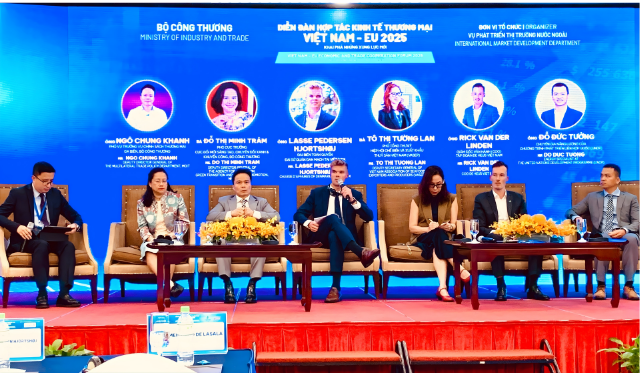 Experts at the forum on October 17 – Photo: Tu Kinh
|
|
The Vietnam-EU Free Trade Agreement (EVFTA) is an agreement between Vietnam and the 27 EU member states, effective from August 1, 2020. It eliminates nearly 100% of tariffs over 7-10 years, with the remainder enjoying 0% tariffs within quotas. Beyond tariffs, the agreement opens up services, finance, logistics, e-commerce, and public procurement sectors. This enables Vietnam to diversify exports and attract high-quality investment, while EU businesses benefit from tariff advantages, expanded investment, and enhanced competitiveness in Vietnam. |
– 08:00 19/10/2025
Eximbank Honored with “Asia’s Outstanding Enterprise” and “Fast-Growing Enterprise” Awards at APEA 2025
On October 9, 2025, Eximbank was honored at the Asia Pacific Enterprise Awards (APEA) 2025 with two prestigious accolades: the Corporate Excellence Award and the Fast Enterprise Award. This achievement marks a significant milestone, solidifying Eximbank’s growing prominence in the regional financial market.
FIATA World Congress 2025: Unlocking Global Integration for Vietnamese Businesses
Speaking with reporters, Mr. Dao Trong Khoa, Chairman of the Vietnam Logistics Business Association (VLA) and Head of the Organizing Committee for the FIATA World Congress 2025, emphasized that Vietnam has created a historic congress in the 99-year history of the Federation. This milestone firmly establishes Vietnam’s position on the global logistics map.
Masan Consumer Recognized by S&P Global Among World’s Leading Sustainable FMCG Companies
Masan Consumer (UpCom: MCH), a subsidiary of Masan Group, has been awarded a prestigious ESG (Environmental, Social, and Governance) score of 48 by S&P Global, one of the world’s leading rating organizations.









